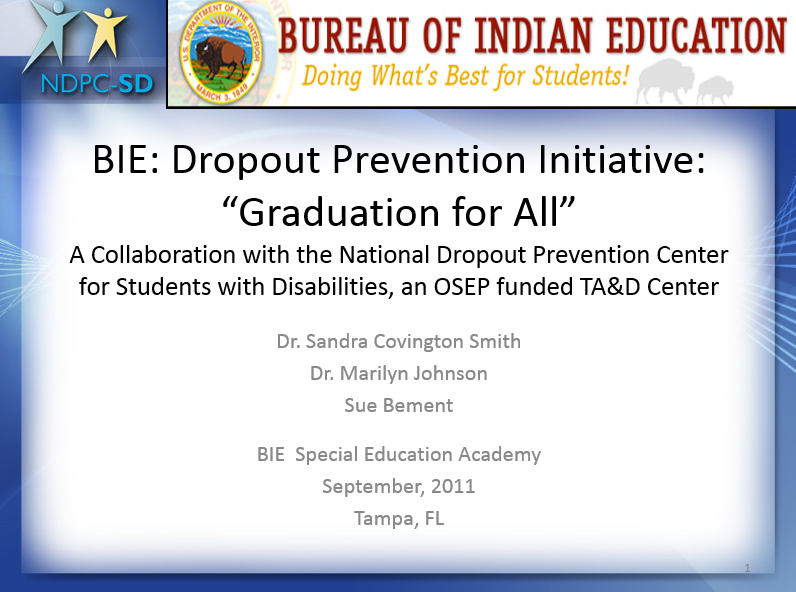
Graduation for All
This presentation composed by the Bureau of Indian Education discusses the school drop out risk factors and predictors affecting Native youth, drop out prevention, prevention programs, and strategies.Presentation
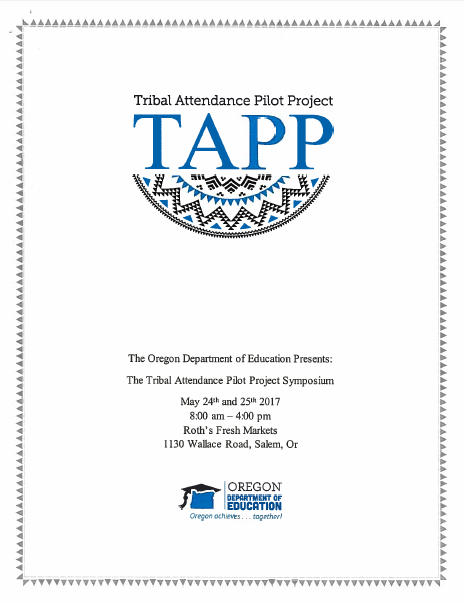
Tribal Attendance Pilot Project
This report highlights the goals, data, barriers and outcomes of the Tribal Attendance Pilot Project (TAPP), a project developed by representatives from the nine federally recognized tribes in Oregon to reduce absenteeism of American Indian and Alaska Native students in ...read more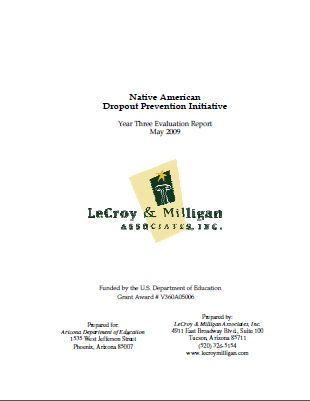
Native American Dropout Prevention Initiative
This is the evaluation report for the third year of the Native American Dropout Prevention Initiative (NADPI), a three-year grant that was awarded to the Arizona Department of Education (ADE) in April 2006 by the United States Department of Education.The ...read more
Dropout Prevention and Trauma: Addressing a Wide Range of Stressors That Inhibit Student Success
This publication is designed to inform and facilitate awareness of and best practices related to dropout prevention and trauma-informed education.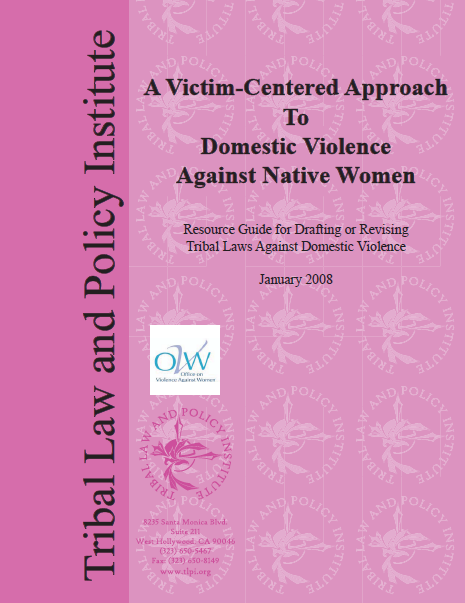
A Victim-Centered Approach to Domestic Violence Against Native Women
This resource guide was developed to provide a starting point for drafting or revising tribal laws on domestic violence.This resource guide includes examples from a variety of tribal codes and discussion questions which are designed to help tribal community members ...read more
Beginning the Dialogue: Domestic Violence, Sexual Assault, Stalking, & Teen-Dating Violence
This report discusses the findings from a project that engaged Native American communities in California about the topics of family violence issues including domestic violence, sexual assault, stalking, and teen-dating violence. The published results include information gathered and strategies developed ...read more
A Comprehensive Technical Package for the Prevention of Youth Violence and Associated Risk Behaviors
This technical package written by the CDC's Striving to Reduce Youth Violence Everywhere Initiative represents a select group of strategies based on the best available evidence to help communities and states sharpen their focus on prevention activities with the greatest ...read more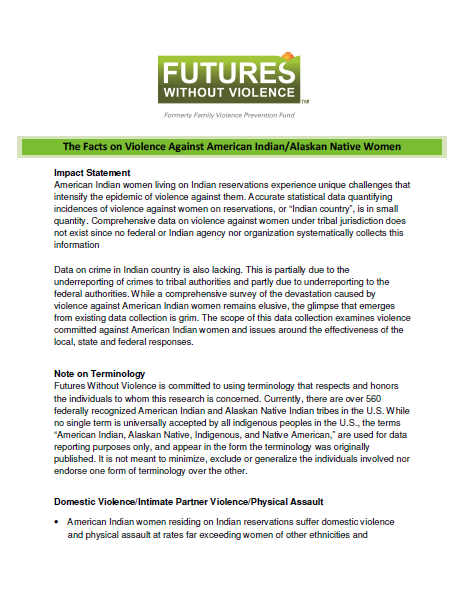
The Facts on Violence Against American Indian/Alaksan Native Women
This fact sheet produced by Futures Without Violence discusses data on various forms of violence and American Indian and Alaska Native women.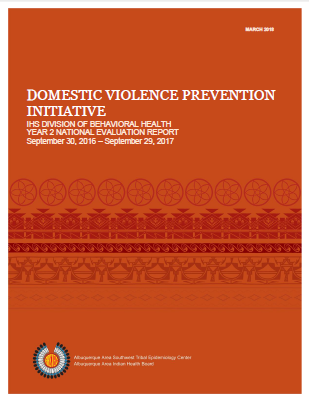
Domestic Violence Prevention Initiative
The purpose of this report is to provide findings from the national program evaluation of the Domestic Violence Prevention Initiative (DVPI) funded by the Indian Health Service (IHS) Division of Behavioral Health. The data included in this report is from ...read more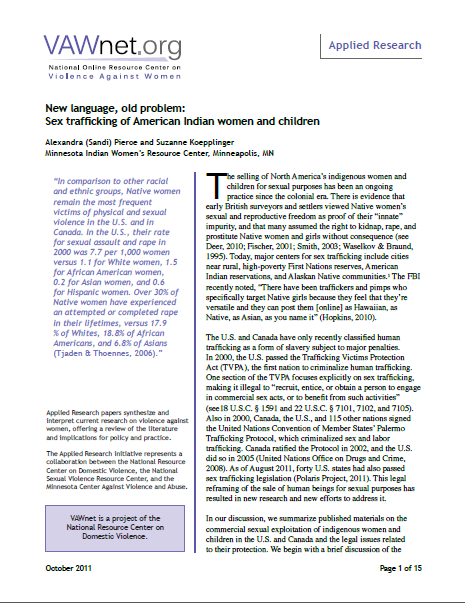
New Language, Old Problem: Sex Trafficking of American Indian Women & Children
This report reviews research, legal implication, and recommendations for professionals regarding the sexual exploitation of American Indian women and children.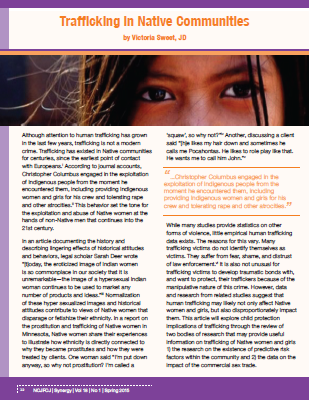
Trafficking in Native Communities
This excerpt from the National Council for Juvenile and Family Court Judges newsletter provides a brief look at sex trafficking in Native communities, including risk factors, data, and recommendations.